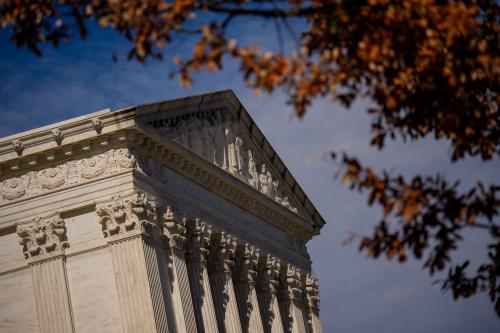In December, the DEA issued a rule about marijuana policy that set off a firestorm of criticism from the marijuana reform movement—and particularly among medical marijuana advocates. The rule dealt with a compound found in the cannabis plant called cannabidiol or CBD. CBD is present in most marijuana products, often along with its sister compound THC. The difference between the two is that THC is intoxicating, while CBD is not.
That distinction over intoxication and THC’s explicit mention in the central drug control law in the U.S.—the Controlled Substances Act—has led to a variety of interpretations about what is legal and what is illegal. In its December regulatory action, DEA reiterated that CBD is considered an illegal substance—just like other marijuana products. Formally, the action finalized a rule proposed in 2011 to establish a distinct entry for marijuana extracts (like CBD) in the federal schedules of controlled substances, separate from marijuana itself. In explaining its December decision, the DEA characterized the rule as bringing U.S. marijuana enforcement into better compliance with international drug control regulations—under the United Nations Single Convention on Narcotic Drugs, marijuana and its extracts are tracked separately.
So, why is there conflict? Part of the problem has arisen as states have legalized medical and recreational marijuana and a variety of products have become more mainstream. Among these products are CBD oils or other products rich in CBD. They are used by medical marijuana patients for everything from reducing seizures, to serving as an anti-inflammatory, to alleviating anxiety. Often, these products are (incorrectly) called CBD-only products. And what’s more, some companies are shipping these products across state lines, claiming that CBD products are perfectly legal. They’re not, and shipping those products across state lines violates both federal law and the Justice Department guidance that has allowed state-legal systems to operate. That behavior, and the realities of federal law, have led to a series of cease and desist letters from the FDA to producers shipping products across state lines.
As the video above explains, the problem with the label “CBD-only” is that these products contain other compounds—or cannabinoids—including THC. In many states with either legal marijuana systems or ones that allow for the possession of CBD products, there are thresholds for determining a CBD product. In many states, it is a “CBD-only” product if it has less than 0.3 percent or 0.5 percent THC. However, any product that contains THC, even in small amounts, is considered marijuana under federal law and is illegal.
Some have argued that as long as producers use industrial hemp, legally imported from foreign sources, and the CBD product is extracted from that, it is legal. Once again, this creative interpretation of the law runs afoul of reality. The use of imported hemp is heavily regulated, and even if such extraction processes were not, in themselves, a violation of federal law, products containing even trace elements of THC would be.
Courts have largely afforded DEA broad latitude in controlling substances derived from the cannabis plant. The DEA’s stance, all along, has been that cannabinoids are marijuana and thus are a Schedule I substance and illegal in all circumstances. Marijuana reformers often point to Hemp Industries Association v. DEA to say that non-psychoactive hemp is not a controlled substance. While the judge in that case ruled that not all cannabis plants fall under the Controlled Substances Act, most courts, including the cases U.S. v. Plume (2006), U.S. v. Proyect (1993), and U.S. v. Spann (1975), have held just the opposite.
There is one path forward for those hoping to challenge the federal government on CBD’s legality. Marijuana is defined in the Controlled Substances Act as a product derived from the cannabis plant, except products derived from its mature stalks—essentially from hemp. This has pushed people to argue that extracts derived from hemp should not be controlled. However, the law is also clear that tetrahydrocannabinols (THC products) are controlled as a Schedule I substance. If a company could extract pure CBD with no detectable amount of THC from a hemp plant, a plain reading of the Controlled Substances Act could provide cover for its legality. Yet, the strict rules emerging from a reform in the 2014 Farm Bill about the manner in which hemp can be grown in the U.S. make it illegal to grow for commercial purposes, one thing is clear: in order for a truly CBD-only product to be declared legal, other laws would need to be amended.
So, for now, CBD products are illegal substances and DEA will continue to treat them as such.
The Brookings Institution is committed to quality, independence, and impact.
We are supported by a diverse array of funders. In line with our values and policies, each Brookings publication represents the sole views of its author(s).




Commentary
DEA guidance is clear: Cannabidiol is illegal and always has been
February 6, 2017